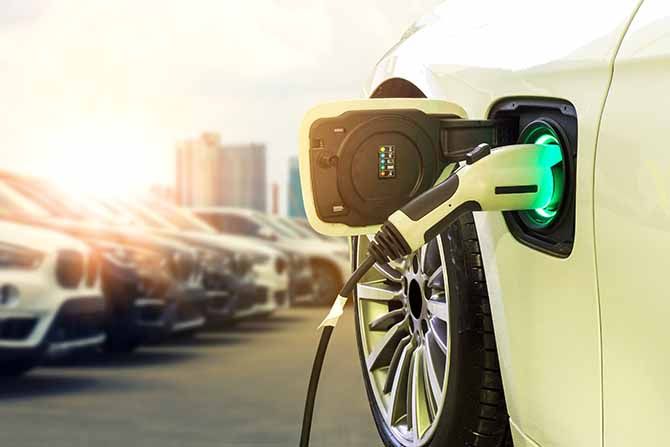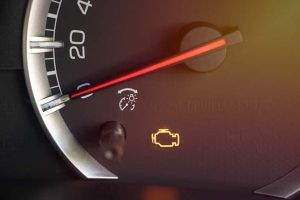“Since EV tires need to be rotated and replaced more often, tire maintenance and replacement will be the new entry point for EVs.”
Change is tough, but a lot of good can come from it. We’ve seen this repeatedly as disruptors redefine and restore balance to industries.
EVs will cause a big shift, complete with changes to policy and procedure. However, as electric vehicles go mainstream, there will still be plenty to do in dealership service departments. EVs need maintenance and repairs despite dealer concerns that EVs require less maintenance than other vehicles because they have fewer parts and no need for engine-oil changes or regular service visits.
For many dealerships, the service department’s bread-and-butter revenue mainly comes from work involving alignments, brakes, electrical systems, suspensions and tires. So it will help worried dealers to remember what’s on EVs: brakes, electrical systems, tires, steering systems and suspensions.
Lube, oil and filter services have been the entry point for most service departments. Still, because EV batteries are heavy, EVs weigh more than otherwise similar vehicles with gas-powered engines. The weight wears out tires faster. Since EV tires need to be rotated and replaced more often, tire maintenance and replacement will be the new entry point for EVs.
Additionally, EV repairs are usually expensive. History tells us that new technologies need an iron-out period, and EVs are no exception. Components break, and batteries have issues. As the vehicles evolve, there will be new opportunities for service.
Starting with Ford, manufacturers seem to be giving the impression that they want to copy Tesla’s methods for handling repairs and eliminate the labor rate or parts markups they currently pay when dealers are involved. Doing so would increase their control and improve their bottom line, so manufacturers are putting requirements in place regarding the repairs a dealer can do. For example, Ford won’t allow dealer service departments to fix certain vehicles without having a specific equipment set. It will be interesting to see how this power play ends. We know dealers must protect the value of their service departments, and we also know that dealers understand service better than the manufacturers do.
What are the first steps in finding a better solution? Recognize what the market is today and how it affects you. Also, continue planning for the future by getting clients in the door to repair and service their vehicles, and give them the best experience possible.
A general manager may not have an expert to explain why a cost-cutting decision in the service department is a mistake, and it’s easy to miss important variables that drive revenue in the service department when you make decisions from 30,000 feet.
Getting parts will continue to be a problem, and some repairs will take longer than others. As a dealer, do what you can to control processes, training and oversight. If you don’t have the bandwidth, find a strong partner who can fill in the gaps and work closely with your team.
People are trying to automate the warranty process. It is nice when you can get simple repairs handled, but not everything is cookie-cutter. Your bread and butter comes from a few areas. One is maximizing the bigger repairs and understanding how to get the most out of that newly acquired labor rate or parts mark-up percentage increase. Another is creating efficiencies and processes that benefit the entire service department team. Education is still the key to growth and progress in service departments.
When managers see markets drop, it’s easy to make hasty decisions without understanding the impact of that decision on the service department. Managers might think they can find cheaper ways to do things, but then receivables shrink or inefficiencies cut into profit margins. Claims fall, revenue decreases and management doesn’t get the same knowledgeable reporting. That’s why it is important to think about how decisions affect everyone down the line as well as planning for the future. Everything will fall into place if we make good moves that benefit everyone.
The service department must ensure their people understand their role and do their jobs to legitimately maximize warranty dollars. If the department can structure itself properly, which includes processes and efficiencies, they will be ready for the future. That future includes a rebounding market. When that happens, you want to be ready to absorb the full level of profitability by making sure the service department can deal with increased work without hiring staff.
Manufacturers always make changes, so you need to hire and retain staff with the knowledge to direct repair orders. A Service Manager, Technician, or Service Advisor like that can bring everyone else up.
Even though it can be hard to find and hire staff with tribal knowledge, a lower-cost person doesn’t have the same skills. Skilled team players are expensive because they know their roles and what they should be doing. They stay in front, training and lifting the department. Hiring the right person or partner is like deciding whether to buy steak or jello. Jello costs much less, but it is no substitute for steak.
If you end up hiring inexperienced staff in critical positions, in the absence of having a lot of senior people, it is easy for bad habits to spread. Then you have bigger problems to fix and miss out on the money you could have been earning. Cleaning up these types of internal messes pulls your critical team members down rabbit holes they shouldn’t be in.
Although many dealers don’t have the time and money to train in-house, they can create partnerships by consulting and outsourcing with a good outside company that acts like a life coach and mentor for their business. The dealership can use a consulting company to keep employees on track and responsible, including new people. The consultants can do stand-in work when employees are gone, lift teams and keep them on track. The right company will actively find patterns of problems, spoon-feed dealers the information they need and give them options to improve. Dealers can then learn from the consultant’s processes and keep moving forward. With a nonbiased partner, you can find ways to help everybody and grow the service department.
It’s important to know why you are doing something because you will get stuck or slide backward if you do things for the wrong reasons. Success comes from acting purposefully for all the right reasons.
Although EVs are a big change, they offer dealers many new opportunities.









